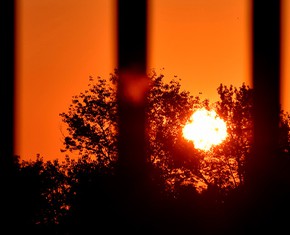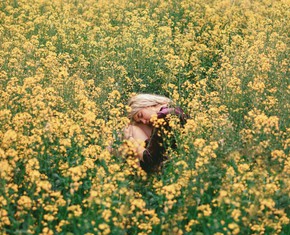The views expressed in our content reflect individual perspectives and do not represent the authoritative views of the Baha'i Faith.
How do you feel about change? No, I don’t mean coins—I mean real inner change, the kind that alters the way you think or the direction you’re going in life.
The great writer Fyodor Dostoyevsky, in his book Crime and Punishment, wrote that “Taking a new step, uttering a new word, is what people fear most.”
It’s true—many people fear and resist change in their lives, seeing it as painful, troubling and just plain hard to do. Change frightens most of us, especially when it involves giving up our old, comfortable selves—and lives—for something new.
Change, of course, means discomfort. In some ways, we all fear losing the comfortable and the familiar in exchange for the unknown. The hero myths from every culture tell us that reluctance to change can represent the hero’s biggest dragon, our toughest inner challenge. But our inherent reluctance to change doesn’t have to seem like such a fire-breathing monster if we understand change as evolutionary growth:
Some changes look negative on the surface but you will soon realize that space is being created in your life for something new to emerge. – Eckhart Tolle
This kind of progressive thinking raises an important question: what do we really give up when we change? Do we discard our former self when we expand our consciousness and grow into a new self?
We are not trapped or locked up in these bones. No, no. We are free to change. And love changes us. And if we can love one another, we can break open the sky. – Walter Mosley
When we change, we don’t throw away our former identity, the philosophers Ken Wilber and Guy Murchie have both pointed out. Instead, when we transcend one level of development and move on to another, we grow. Just like it does in childhood, each new stage of growth and development subsumes and enfolds the former stages. Rather than leaving everything behind and starting completely over, we allow ourselves to gradually evolve, which allows us to incorporate a wider and more comprehensive whole.
Evolution isn’t easy. However, the realization that this physical life demands constant adaptation and evolution requires that we think about change as a necessity rather than an option. The Christian writer C. S. Lewis put it this way:
It may be hard for an egg to turn into a bird: it would be a jolly sight harder for it to learn to fly while remaining an egg. We are like eggs at present. And you cannot go on indefinitely being just an ordinary, decent egg. We must be hatched or go bad.
So from a spiritual perspective, the terms renunciation, sacrifice, and surrender all function as code words in the sacred literature for a personal ability to reach creative self-consciousness, to evolve, to grow and transcend:
… Christ was like a seed, and this seed sacrificed its form so that the tree might grow and develop. Although the form of the seed was destroyed, its reality manifested itself, in perfect majesty and beauty, in the outward form of the tree. …
The form of the seed was sacrificed for the tree, but its perfections were revealed and manifested by virtue of this sacrifice: For the tree, its branches, its leaves, and its blossoms were latent and hidden within the seed, but when the form of the seed was sacrificed, its perfections were fully manifested in the leaves, blossoms and fruit. – Abdu’l-Baha, Some Answered Questions, newly revised edition, pp. 135-136.
Would you sacrifice a seed for a tree? Of course! Who wouldn’t? Our own sacrifice, understood in this organic context of growth and spiritual development, calls for moving beyond our lower nature and ascending to a higher one. That’s the essential truth of all growth and all life.
But in hindsight, an evolutionary movement from seed to tree and from weakness to strength hardly qualifies as a sacrifice. Just like a baby gives up crawling when walking works better, our souls adapt to new stages of development when we’ve outgrown the previous ones.
In reality, of course, this requires no sacrifice at all, but simply the courage to evolve and change.
In Abdu’l-Baha’s metaphor of the tree, the seed loses its identity as a seed to become a shoot. The true properties of the seed don’t get lost when it grows—in other words, it retains its essential “treeness”—but its boundaries expand. Instead of taking up the space of a seed, it takes up more space, and gains greater stature. The shoot has absorbed the seed, as the tree will eventually absorb the shoot. It has stretched itself, surpassed its boundaries, re-mapped its life, and attained new potential and growth. Obviously, trees—and human beings—can only grow and develop spiritually by transcending their current state and advancing to the next.
That sort of physical growth mirrors the process of inner spiritual growth—we give up our former selves to achieve a more evolved self. We transcend our earlier, less sophisticated selves to achieve our true destinies. The Baha’i teachings represent a modern model for understanding that process of change, growth, maturation and spiritual development:
May you become as growing plants. May the trees of your hearts bring forth new leaves and variegated blossoms. May ideal fruits appear from them in order that the world of humanity, which has grown and developed in material civilization, may be quickened in the bringing forth of spiritual ideals. – Abdu’l-Baha, The Promulgation of Universal Peace, p. 39.
















Comments
Sign in or create an account
Continue with Googleor